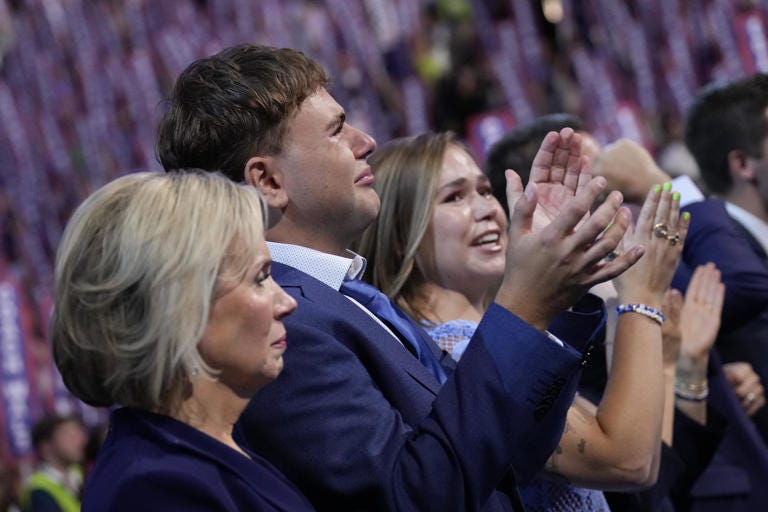The internet lit up recently following a speech by Vice President nominee Tim Walz at the Democratic Convention. His words were filled with passion and inspiration, but what captured the world’s attention was the moment his son, Gus, leapt to his feet, applauding and shouting, “That’s my dad! That’s my dad”! No matter what titles Mr. Walz may earn in his career—even the possibility of Vice President of the United States—his son will always be proud to call him Dad.

This moment resonated deeply with me, not just as a psychologist but as a father. In previous generations, the emphasis was often on making our parents proud. However, I find myself more concerned with whether I’m the kind of father my children will be proud of—whether I’ve met their expectations of what they needed from me. Sometimes, fathers don’t have the best examples to follow, and they might look to someone for guidance and inspiration. There are a few qualities from Walz’s speech and his life that I think all fathers can aspire to. Live by these, and your children may one day proudly shout, “That’s my dad!”
1. Great Dads Are Often Ordinary People
In the age of social media, fathers are bombarded with messages that make fatherhood seem like an elite sport requiring the discipline of an athlete. Many dads feel that the bar is impossibly high. But if you ask children what they need most from their dads, the answer is simple: they need someone who’s *there*—someone who shows up.
A great dad doesn’t have to be a superhero with an extravagant career. He’s the dad who reads bedtime stories, helps with homework, and shows up for soccer games. He knows when to offer advice and when to just listen. Fathers like Tim Walz—a former high school teacher and football coach—lead everyday lives, yet they make a profound difference in their children’s lives. It’s in this ordinariness that they are truly extraordinary.
As I’ve emphasized in previous posts, “Children from homes with supportive, present fathers tend to perform better academically and are less likely to suffer from depression or engage in substance abuse.” The key takeaway? Fathers who are present, engaged, and involved make all the difference. There’s no complex formula to being a great dad—just being there for your kids in the everyday moments is enough to inspire them to proudly say, “That’s my dad!”
2. Great Dads Are Kind
Fathers who lead with kindness are often admired not just by their children but by their communities. In his speech, Walz emphasized the importance of being a good neighbour. This idea of neighbourliness isn’t just about helping someone change a tire or lending a tool. It’s about showing kindness in everyday interactions—whether you’re offering a smile to a cashier or cooking a meal for a friend in need.
But most importantly, children learn about kindness through how their fathers treat others, particularly their mothers. Simple acts of kindness toward your partner show your children how to build healthy relationships. These small demonstrations teach children that being kind isn’t just about words, but about action. By modelling kindness, we prepare the next generation to be compassionate citizens, leaders, and community members.
3. Great Dads Make Their Children Feel Safe and Secure
When Tim Walz looked at his family in the audience and said, “You are my world,” he was delivering a message his children have likely heard many times throughout their lives. This statement goes beyond love—it’s about creating a sense of safety and security. Fathers who are present and attentive send their children a clear message: “I’ve got you.”
Children who feel secure in their relationship with their father are more likely to face life’s challenges with confidence. They know that, no matter what happens, Dad will be there to help them through. This bond of trust is foundational—it’s what helps kids navigate difficult moments, knowing that no problem is too big to face together.
So, can you turn up for your kids? Can you do the simple, everyday tasks that life requires? Can you be kind, not just to your children but to others? Can you make them feel safe and secure? I believe you can. And maybe one day, in a moment of pride, your child will look up and say, “That’s my dad”!



